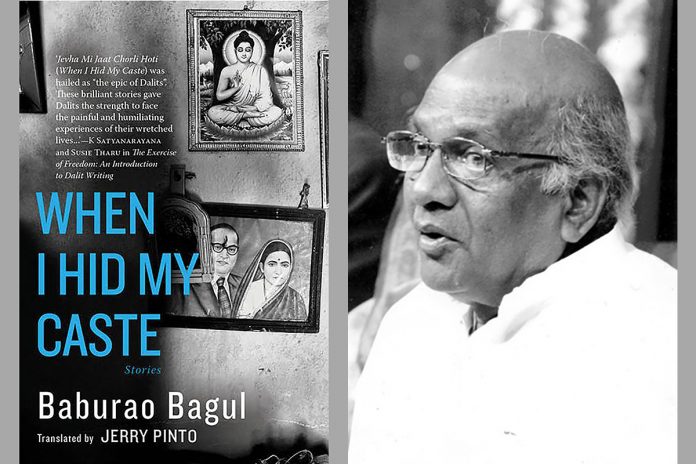When I Hid My Caste – Stories by Baburao Bagul
(Translated by Jerry Pinto)
Published by : Speaking Tiger, Price : INR 399/-
Book Review by Anjana Basu
These short stories were first printed in Navyug, a renowned the Marathi literary magazine in 1963. They were, at that time, hailed as an ‘epic of Dalits’. Shirish Pal, Navyug’s editor confessed in her foreword to the Marathi edition of the book that she would await each Bagul story with a mixture of joy and fear. “The joy came from knowing it would be a good piece of fiction; the fear came from not knowing what the content would be.”
Bagul himself wrote in an essay that the established literature of India was ‘Hindu, upper class and elitist literature’ and that the lowest classes were left out from the literary echelons because of this very reason. He saw Dalit writing as a means of presenting new thoughts and themes to the public and for presenting the readers with a new kind of hero.
Since that 1963 publication, Jewha Mi Jaat Chorali Hoti has been published and republished many times, proving it to be a landmark of Dalit literature. The 11th edition appeared in April 2018. Jerry Pinto’s gritty translation preserves the power of the original stories – they retain that undercurrent of ferocity which must be even more so in their original Marathi.
Bagul’s protagonists make their way through ‘mosquitoes and grime’ or stand at the entrance of huts like warriors carved out of black rock. Paan shops spring into the angry eye and are trapped there. Time and men pass the streetwalker Girija by at her most desperate moment. These images remain in the reader’s memory and niggle at the imagination.
The title story stands out from the rest and remains an issue that is still uppermost today. The main character refuses to disclose his caste and insists that he is a Mumbaikar; however, in the end, he is thrashed mercilessly when his Dalit status comes to light and finally has to be rescued by another Dalit who carries a knife. Ultimately, he blames Manu for the beating he received and not the men responsible.
Fifty years on, the Dalit remains a victim at the hands of upper caste power brokers and is subjected to subtle or not so subtle incidents every day. Readers would do well to remember that.
Anjana Basu is a renowned novelist, poet, reviewer and travel writer.















